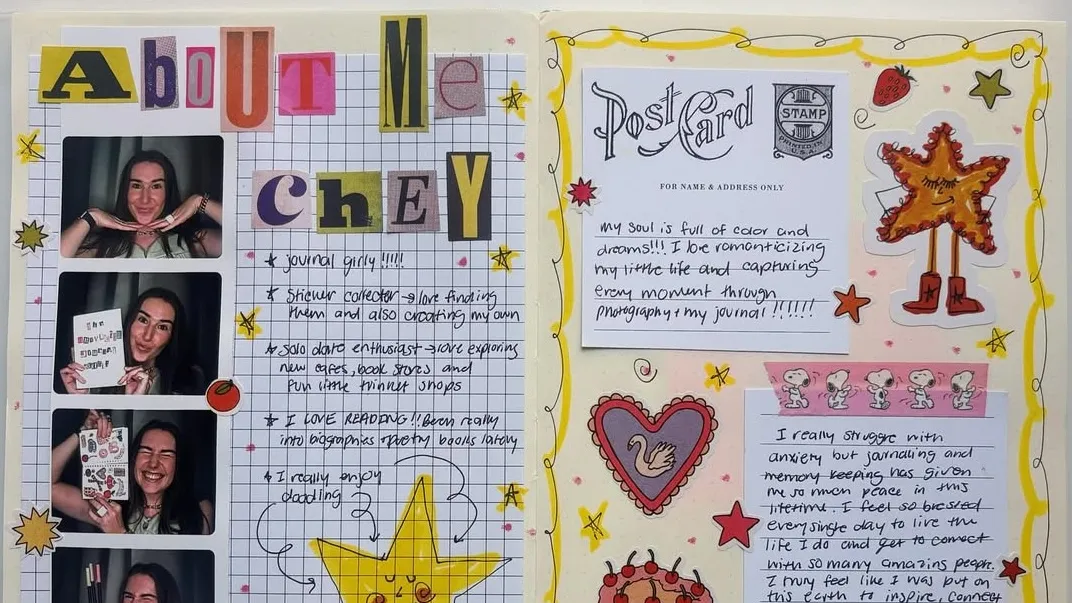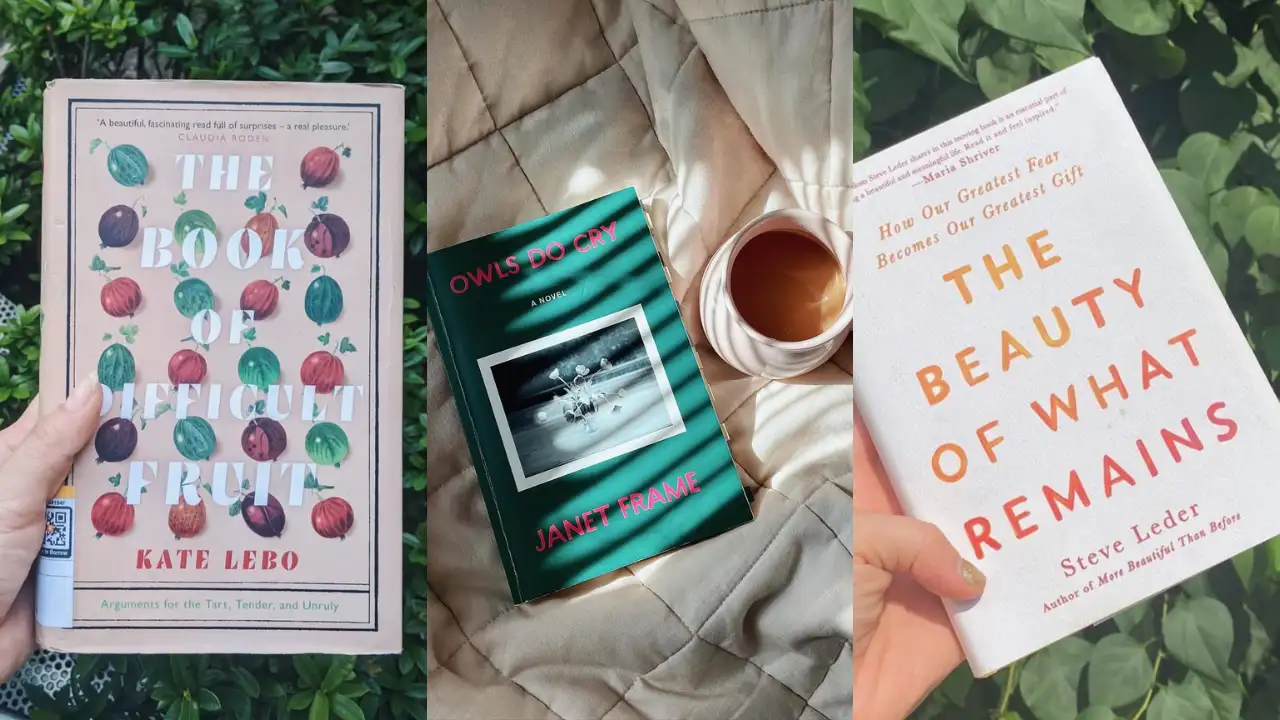Copyright vogue

The first journal I owned was a gift from my father. It was soft pink, made of cloth and covered with little pictures of flowers and hearts. He worked in the family business—one of India’s first printing presses set up in 1936—and it was a design they’d made in the early ’90s to attract modern consumers in a newly liberalised country. Last year, when I pulled it out of the box that held all the journals I’d written between 1997 and 2009 to compile my memoir Girls Who Said Nothing and Everything (published by Penguin Random House India), I was struck by its muted simplicity. I’d always been nostalgic about growing up in the ’90s before technology was a part of normal life. But I was surprised to learn that the history within the pages of my journals was far more complex. Between the mid-nineties and early aughts, journal writing was a rite of passage for girls. Television was replete with images of young women writing their secret lives down in a book and hiding it away from their parents. Falguni Pathak’s music videos were filled with angelic models who embodied a quiet, grating femininity while challenging authority. Britney Spears’s song titled ‘Dear Diary’ showed her writing an entry in a spiral notebook in a luminous vignette. I remember reading Helen Fielding’s Bridget Jones’ Diary in high school and immediately fantasising about recording my own thoughts because I related to that desperation for intimacy and relief. My parents were conservative and it was difficult to discuss my life with them. They’d both grown up in joint families in small towns, where the purpose of womanhood was singular: grow up, get married, have children and serve your family. In 1997, when my father gave me my first journal, I took it with me to boarding school and wrote in it every day. Writing was a cathartic process. In these pages were my secrets, my crushes, my fears and my sorrows, all of which I wasn’t allowed to have in the real world. So when I heard that journaling has now gripped Gen Z—a generation that is digitally native and tech-proficient—with TikTok having more than 2.3 million posts dedicated to it, I was surprised at how public it was. Female self-reflection in the ’90s used to be burdened with the idea of shame around self-expression. To find a space for yourself meant finding time outside the expectations your parents and teachers had of you, and to use the ten or twenty minutes of privacy you had to exorcise your demons, get them off your chest. Every page in my old journals was reflective of this—through ages 12 to 22, I wrote about feeling lonely, fighting with my parents and hating my life. Several times, I wrote about heartbreak, bullying and severe depression. On my TikTok feed, Gen-Zers are showing off beautiful passages in their journals, wide open for the world to see. This was a revelation to me. Sitting at my desk, I watched these videos; Caiti Mackenzie, a Florida-based content creator, with 533K followers on Instagram, has a whole series of videos dedicated to how she “junk journals” using grocery lists, unused napkins, flight tickets and random scraps cut out from shopping bags and magazines. Her journals, unlike mine, are thick, kitschy and colourful. She opens the pages and shows her viewers what she’s gathered from vacations and talks through each entry she glues together. Chicago-based content creator Cheyenne Livelsberger compiles junk journals and shares tips on journaling. Her rules for good journaling include printing out a photo of yourself for the very first page, writing a letter to your future self and including doodles, affirmations and stickers alongside notes and thoughts. I didn’t relate to this. This joyful oeuvre of journal writing seemed culturally less inclined towards self-expression as a means of survival, and more as self-expression as a feminine aesthetic. My own journals are, perhaps, reflective of a different time. They are ratty-looking, standard journals with dog-eared pages and long-winded entries that are sometimes blotched because I often wrote in haste. Their appearance meant little to me. Even while referring to them to write Girls Who Said Nothing and Everything, there were moments when I had to look away. The pages captured the raw, earnest emotions of a young woman trying to make sense of herself in a patriarchal society. Every entry reflects the psychological toll that the socio-political culture of the time took on the mind of a teenage girl. The junk journal writers on my TikTok feed, unlike me, are less concerned with the constraints of the world around them. Their focus on the interior is reduced to bite-sized, easy-to-consume thoughts that are polite and acceptable. It is not the absence of shame that makes this kind of journaling less relatable—as a feminist, I’ve always yearned for girls to feel less burdened by shame—but it is the insistence on memory-keeping as singularly joyful and stress-free. 28 years have passed since I first began writing journals, and while it is still a safe space where I feel like I’m allowed to process my life and emotions, it is not particularly joyous. Life isn’t just joyous. And that’s the truth. Many contemporary writers like Amitava Kumar, David Sedaris, and Susan Sontag, who have kept journals, have consistently talked about the importance of journal-writing for examining one’s inner life. But what exactly is an inner life anymore? For someone born in a generation where technology blurs the private, public and the political, the idea of self is fluid and abstract. Unlike millennials, who still try to juggle old-world expectations and change in their lives, Gen Zers are immersing themselves in the only world they know. Whether it is junk journaling, video blogs, podcasts or content creation, the purpose of recording one’s life is no longer about self-expression alone but rather the dogged pursuit of channelling private thoughts for public consumption. Despite my misgivings about this, I’ll admit that I, too, have consistently sought this sense of liberation in my own life. I write my journals, as I’ve done, but I no longer hide them. I suppose this is why using my journals to mould a book this year felt like a release from my own internalised shame around self-expression. Although I continue to write journals in my late thirties, leaning into the craft of storytelling allowed me to give voice to a girl that didn’t have one, and at the same time, speak to a universe larger than myself. Meera Vijayann lives in Kirkland, USA, and is the author of the essay collection ‘Girls Who Said Nothing and Everything’, now on stands. Why do millennials care so much what Gen Z thinks of their style? Why every millennial woman you know is suddenly watching The Summer I Turned Pretty So many millennials look and seem so much younger than they are. Why?



